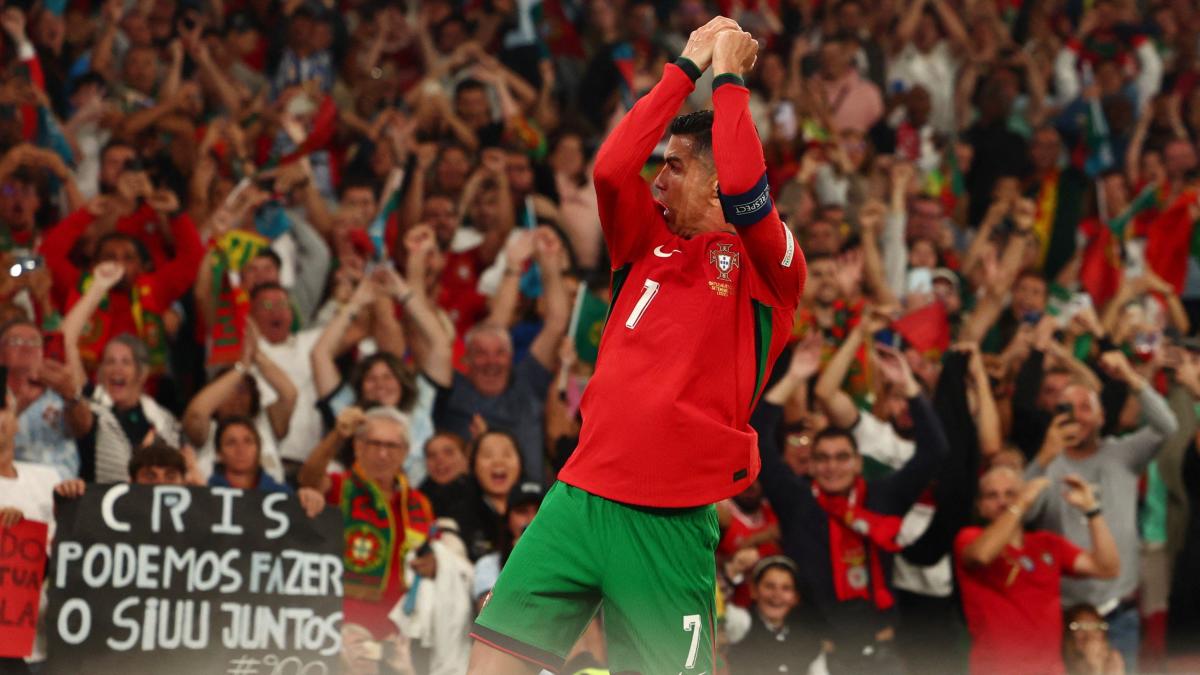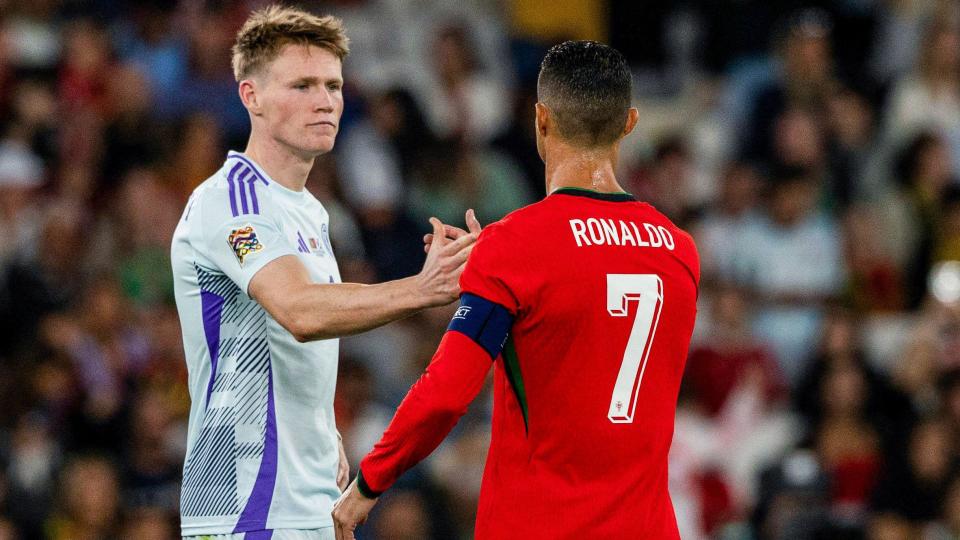


After Cristiano Ronaldo had stretched a supple leg to turn in his 901st career goal and down Scotland, he tore away to the corner flag to perform his customary celebration with all the gusto of a man scoring his first.
He was not done there either, parading down the touchline gesturing and screaming as if he had just scored a goal worth more than three Nations League points.
The 39-year-old has exited the main stage in club football with his move to the Saudi Pro League, and his ecstasy at coming up with yet another big goal for his country at a a packed and rowdy Estadio da Luz tells you he probably knows it.
But such is his determination, thirst for goals and success, and almost unrivalled finishing prowess, he keeps finding a way to remain relevant.
Having been left on the bench and unleashed at half-time by Roberto Martinez with Scotland 1-0 up, the game almost instantly became the Ronaldo show.
Before his winner he hit both posts, moaned and furiously gesticulated at the referee and team-mates, while also being pursued by a pitch invader at one stage.
Scoring 901 professional goals is a ridiculous feat, and such is his ferocious appetite, you really would not bet against him getting to 1000.
Nobody tells Ronaldo when to step aside. Even if some might want him to.
Scotland became the 48th international side to suffer at Ronaldo’s feet, which was hardly a surprise.
But over this game and the Poland defeat there are still areas of major concern for Steve Clarke’s side. Five goals conceded makes it a total of 33 against in their last 14 games.
In five of their last six matches they have conceded after the 85th minute. It is now one win in 14 games and no competitive win in the last year.
Against top opposition, Scotland cannot seem to stem the tide of goals. And late ones, at that.
“I reiterated to my players that we have to understand what part of the cycle we’re in, what we’re trying to build,” head coach Clarke said afterwards.
“We’re trying to re-adjust after the summer. We can lose these matches to try and build and make sure that the end goal, as always, is to qualify for the tournament.”
That suggests Clarke is trying to recalibrate how his team plays after a disappointing Euro 2024 campaign during which they barely fired a shot.
The switch from a back five to a 4-2-3-1 has shown better glimpses of attacking quality, and Scotland had a strong spell after conceding the equaliser to Bruno Fernandes.
The introduction of Ryan Gauld, Ben Doak, and Tommy Conway to this camp also hint at a different approach in preparation for next year’s World Cup qualifiers.
Evolution, not revolution was what Clarke described it as. On the evidence so far there is plenty of work to be done, with limited time to do it and top quality opposition to face.


One thing is for sure, Scott McTominay will be at the centre of Clarke’s attempted reset as his remarkable goal-scoring run continued in Lisbon.
The enigmatic midfielder crashed in the opening goal with his head, which was his 10th Scotland goal in his last 12 caps.
That’s seven more than any other player in the same timeframe.
His summer move from Manchester United to Napoli was a source of much talk, with Erik Ten Hag admitting he did not want to midfielder to move on.
Several United managers struggled crack the McTominay code, with various roles in midfield yielding mixed results.
With Scotland there was an element of that, too. Two years ago the 27-year-old was playing as a right-sided centre-back when pitching up for his national side.
He had just one goal in his first 37 caps, and has now added a further 10 in his last 17 since a lease of life in an advanced midfield role.
McTominay is now Scotland’s undisputed talisman.
“He seems to relish playing in a Scotland jersey,” said former Scotland striker James McFadden on BBC Radio Scotland.
“He will certainly have a lift from making the move to Napoli.
“He’s not a conventional number 10. It’s all about his athleticism, energy to drive forward and his intelligence to get into really good positions to score. His finishing is brilliant.”